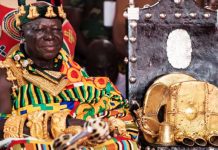Zohran Mamdani will be the first Muslim-Indian mayor of New York City when he takes up the post in January 2026, following an election which has gained global attention. The mayor-elect, who will be formally inaugurated on January 1, 2026, has also been a beacon for a large number of those in the city who come from immigrant backgrounds.
Where is he from?
Mamdani was born in Uganda to Indian parents who have citizenship of Uganda and the US. His father, Mahmood Mamdani, was born in Mumbai (then known as Bombay), India. His mother, Mira Nair, is a film director who was also born in India. The family moved from Uganda to South Africa when Mamdani was five, and then to New York when he was seven.
What does his name mean?
Zohran Kwame Mamdani is a name which reflects his multicultural identity. His surname, Mamdani, is a common Gujarati name for Khoja Muslims, a sect of Islam.
His first name, Zohran, has both Arabic and Persian origins and carries several meanings, including “light”, “radiance” and “blossom”.
His middle name, Kwame, is a traditional name of the Akan people, from the ethnic Kwa group who live primarily in Ghana as well as in parts of the Ivory Coast and Togo in West Africa.
Mamdani’s father is known to be a great admirer of the Ghanaian freedom fighter, Kwame Nkrumah, who led the fight for independence from British rule and served as the newly independent country’s first president from 1957.
What is the significance of his middle name, Kwame?
Kwame literally translates to “born on Saturday” in the language of the Akan people. It also means “wisdom” and “leadership”.
Outside of its literal definition, however, the name is strongly connected with the Ghanaian revolutionary, Kwame Nkrumah, who led his country’s independence movement. Ghana was the first sub-Saharan African nation to gain independence from British rule in March 1957. Nkrumah served as its first prime minister and, later, its first president until he was overthrown in a coup in 1966.
He was influential across the continent as an advocate of pan-Africanism, an ideology which promotes unity across the African continent and within its diaspora in defiance of the imperialistic division of African nations under European colonial rule.
Under his administration, which was both nationalist and predominantly socialist, Nkrumah oversaw the funding of national energy projects and a robust national education system which also promoted pan-Africanism.
Credit: aljazeera.com









